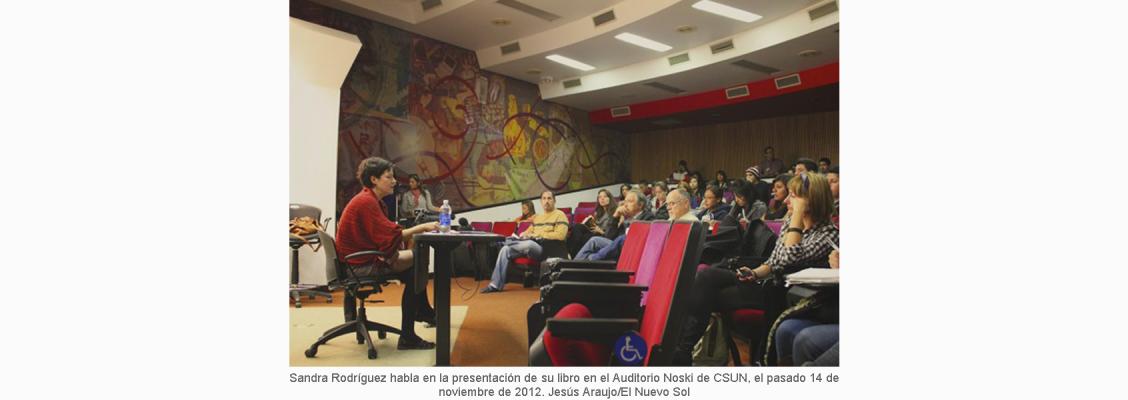On Thursday Nov. 15, 2012, investigative reporter Sandra Rodríguez Nieto examined how Ciudad Juárez, Mexico, became one of the most dangerous cities in the world during a presentation of her book La fábrica del crimen (The Factory of Crime) at the Noski Auditorium, in California State University, Northridge.
In her book, Rodríguez Nieto uses the famous and terrifying case of a killing committed by three teenagers as a metaphor to explain some of the underreported causes of the more than 10,000 murders in Juárez since 2008. She also addresses the effects of NAFTA and the economic explosion in a city that received more than 100,000 new inhabitants destined to work at jobs for minimal wages, corrupt city planning policies and an incompetent and corrupt judicial system.
“In The Factory of Crime, Rodríguez Nieto peels the onion of the causes and effects of the violence in Ciudad Juárez,” said José Luis Benavides, journalism professor at California State University, Northridge. “Her book, like no other recent book written about Juárez, adds layers of understanding that make the reader appreciate the complexities of the problem, moving away from facile explanations and solutions advanced by government officials on both sides of the border.”
Rodríguez Nieto has worked as an investigative reporter in Ciudad Juárez since 2003 for the daily newspaper El Diario de Juárez. She has written stories of regional and national significance, such as the change of the justice system from a civil law system to a common law model in Chihuahua and the lack of urban development planning in Juárez during a dramatic period of population growth. She has also written investigative stories on the maquiladoras, where the majority of workers are still women; migration to Juárez from interior Mexico; and government corruption. Since 2008, Rodríguez Nieto has covered the military and police beats, including the military build-up in the region, the dramatic increase in murders and human rights abuses by Mexican security forces.
In 2011, she received the Knight International Journalism Award from the Center for International Journalists and, with El Diario staff, the Maria Moors Cabot Award from Columbia University.
Her presentation was sponsored by CSUN’s Office of Graduate Studies Distinguished Speaker Program, Department of Journalism, Department of Chicana/o Studies, El Nuevo Sol and Institute for Arts & Media.



